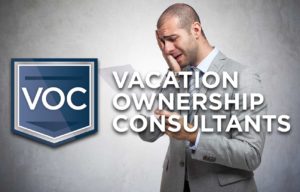The timeshare business has been booming for quite some time now. But demand hasn’t necessarily been the driving force. Since the 70’s, a nearsighted salesforce has been at the wheel despite a diminishing reputation and an increase in competition. At the same time, timesharing isn’t the only travel option that takes advantage of impulse buyers.
Nearly every industry requires a set of laws to keep greedy businesses from taking advantage of customers. There’s always someone who ruins it for everyone. Helping you understand what a purchase of this magnitude entails is important to us. Now that we’ve pointed out the challenges of regulating timeshare marketing tactics and advertising lingo, we wanted to shed light on some of the timeshare laws that protect consumers from misleading sales strategies.
Understanding What Timeshare Sales Laws Regulate
In the early stages of timesharing, when expansion was occurring rapidly, many resorts utilized “misspeak” to promote products that didn’t actually exist yet. Like we mentioned in an article about timeshare history, travel solutions were kind of made up as they went along. Consumers were inevitably left hanging while timeshares figured things out. Without regulations, developers were able to take risks at their customer’s expense. This eventually caused regulatory and consumer protection agencies to form and spring into action.
Even though consumers have become more informed over time, a layer of protection is needed now more than ever before. Since the internet provides a boatload of inaccurate information, it’s important that people can make educated decisions before signing over tens of thousands of dollars. While most of society is aware of what timeshare ownership can entail, not everyone is. Besides, the internet is flooded with sales jargon, so consumers are still easily swayed by the craftiness of timeshare sales teams. In order to combat misconduct in the industry, more and more timeshare laws regarding sales practices have been implemented, revised and reinforced.

Unlike unethical marketing campaigns, sales presentations and conditional offers are easier to regulate. At this point in the sale, marketing tends to reveal its hand and misleading transactions begin to take place. In some instances, it’s where salesmen are caught in their bluff. No matter what is said to get people to attend an initial presentation (or ownership update meeting), it’s not as damning as the terminology used right before the contract is signed. Sales teams realized that this may be their only chance to lock in a new fractional owners. In other words, desperate times (in their minds) call for desperate measures (to make money).
Why Some Timeshare Salesmen are Motivated to Say Anything
There is an awful lot of pressure to sell intervals because the financial reward is tremendous. Timeshare resorts are always looking to maximize profits, especially to overcome some of the turnover they experience. In order to do so, they have to continuously find ways to fill fractional owner vacancies. The less they have, the more they count on current owners to cover expenses. While re-marketing current users isn’t as costly, they realize the real revenue comes from acquisition. The more timeshare owners acquired, the more consistent their revenue will be. This also gives them flexibility to continue developing and expanding properties.
At first glance, you might think it’d be easier to simply sell each unit individually. But, that leaves too much money on the table for resorts. Instead of selling a single condominium unit, timesharing gives resorts an opportunity to make money on 52 interests sold for each unit (52 weeks in a year). It’s pretty hard to tell timeshare developers to stop when they’re able to make 20-40% margins on each sale. It’s simple math. Sell the unit for $1 million or sell 52 weeks for $25,000 and make $1.3 million.

The revenue potential isn’t even close and that’s not factoring in maintenance fees. Besides the fact resorts can charge whatever they want per unit if revenue is low. Most timeshares even limit availability by continuing to sell retail packages. The continual chase of revenue is why resorts don’t mind investing mass amounts of money into strategic endeavors to persuade.
To give you an idea on how much timeshare companies spend on new acquisition, roughly 30-50% of all revenues goes towards sales and marketing efforts. As you can see, the urgency to keep condos filled with fractional owners is real. The problem is, timeshare companies ignore the fact they’re biting the hand that feeds them. While they may promise timeshare owners a plethora of things during the sale, not much comes into fruition. This is where laws are needed to ensure buyers get what they paid for. Let’s take a look at an example so you can see how timeshare sales laws work.
Manhattan Club Caught Taking Advantage of the Elderly.
An investigation of the Manhattan Club began after the Office of the Attorney General received repeated complaints from many timeshare owners that were unable to make reservations at the resort. Despite paying tens of thousands of dollars for their timeshares, the rooms were rented to the general public rather than the timeshare owners, which was in direct violation of the timeshare contract.
But, illegal practices began even before purchases were made. Investigators found that timeshare sales teams repeatedly deceived potential buyers regarding reservation procedures, the ability to sell back shares, and other specifics of the contract. High pressure sales tactics even went so far as to state that their timeshare ownership was “better than money in the bank.” Seniors were (and still are) sold on an experience that’s not realistic.

The sales pitch inevitably promised public use of rooms, an easy reservation process and scarce constraints regarding reservations for owners. All of these claims were found to be false by the Office of the Attorney General and proven in court. In this case, timeshare sales laws protected a good amount of fractional owners that could have been taken advantage of for a long time.
How Timeshares Create a Demand for No Availability
Common timeshare sales tactics tend to surround the overselling or misrepresentation of travel products. In other words sales teams state that owners will have access to all of the inventory while distracting them with an array of intriguing possibilities in order to get the tour to sign the dotted line. What they don’t explain is that they’re selling the lowest level of access and buyers will have to dish out more cash or jump through more hoops to make this a reality.
Salesman know that once the prospect is under contract, there isn’t much they can do to get out of the agreement. The sales system is set up to continuously persuade users to upgrade no matter their frustration. Timeshare infrastructure is built to overcome conflict and upsell. They purposefully create no availability but demand payment. This is why the regulation of the sales pitch is so important.
We hear these types of situations from our clients all the time. One woman was told she could go to Jamaica (which was her sole purpose for purchasing the timeshare) so they could visit their family once a year. When she went home, she immediately called reservations but they told her there were no properties left in Jamaica. They told her to check back in a few weeks, ironically once the rescission period was over. After multiple complaints, they promised to give her a “fully loaded” golf or beach view casita elsewhere. Since she couldn’t cancel the timeshare agreement anymore, she accepted their offer to upgrade and funded the down payment on a new contract. She ended up being a guest at a dingy unit in a sister resort with a parking lot view.

Timeshare Sales Laws Do Regulate Unethical Tactics
These types of situations happen more often than people realize. The thing is, buyers aren’t aware of the laws that protect their rights. While salesmen may tell you your contract is final, unethical terminology used can work to your advantage. If you feel like you’re being set up for another bad experience, then you need to document what’s being said. Without any proof (especially when it’s in person), the probability of things working out in your favor aren’t likely.
Sales Pitches on Investments and Potential Income.
Understanding timeshare sales laws will help you identify and expose false promises that eliminate your obligation to pay for the property. Timeshare companies and sales teams can be penalized if the product is being sold as an investment or prospects are being told they can make money renting out or re-selling the property.
The Florida Vacation Plan and Timesharing Act specifically touches on some of this jargon. “The purchase of a timeshare interest should be based upon its value as a vacation experience or for spending leisure time, and not considered for purposes of acquiring an appreciating investment or with an expectation that the timeshare interest can be resold.” The California Vacation Ownership and Timeshare Act of 2004 also clearly restricts this verbiage.
In other words, it’s a purchase, not an investment – and claiming you can make money on it is against the law. Sadly enough, this causes many timeshare owners to believe they can actually sell the property. This results in them wasting even more money on resale services that rarely pan out. Instead of learning how to get out of a timeshare, they dig a deeper whole due to deception.
Additional Unethical Timeshare Sales Claims.
Leading timeshare owners to believe the property holds more value than it really does is only one tactic that sales teams use. Leaving out pertinent information can also result in consequences. If you’ve signed a contract and the timeshare hasn’t disclosed the right of rescission, right to increase maintenance fees or liability of ownership that results in assessment fees – then you have the right to void your contract.
Another enticing offer for potential timeshare owners is the Survivorship Clause that’s sold as a “Legacy Pitch.” This basically means the timeshare company tells you that you can pass on the property to family when you pass on. In reality, you’re basically dumping the perpetual expense on an unexpected heir. Aside from being extremely inconvenient and a terrible memento, it doesn’t even guarantee the recipient will be able to use it. One of our clients actually speaks about this in one of our testimonials. “Because of the changing industry, they were basically stuck with the cost and nothing to show for it.”

As you can see, there are a number of ways timeshare companies bend the truth and con aspiring travelers. The worst part is that it can take years for those wronged to find restitution. Because of the power timeshare conglomerates have, they can easily bully consumers with expensive legal teams. Unfortunately, most cases don’t even make it to court. But that wasn’t the case for Diamond Resorts in 2016. Arizona Attorney General Mark Brnovich announced a $800,000 settlement with the timeshare giant.
Many timeshare owners found relief when the state found the company was violating timeshare laws regarding annual fee increases, resale claims, rental opportunities and counterfeit discounts on other travel needs. While this was a big deal for the timeshare industry, we still have a long way to go to right the ship. If you’re thinking about buying a timeshare, we encourage you to consider these points before signing the contract. Although we may not be able to do anything about the unethical practices of the industry, we can take a stand to educate consumers on the possibilities of ownership.







3 Responses
It is unfortunate that the timeshare industry has had such difficulties. Being an owner in two resorts has allowed us to travel to destination that we thought would be only in dreams. The system has to be understood and advance planning that provides the best results, that my wife knows very well and gets the best exchanges. I wish everyone would have had our experience with timeshares.
Best Regards.
I work for a vacation club/timeshare. We frequently make announcements in the sales area saying that we just made a sale to someone we didn’t to influence prospects into thinking more sales are made.
Sales reps are also required to “fill” the room by sitting at tables so real prospects think more people are in the room at a time.
Are these practices illegal? I am in Texas. Where can I find any law regulating these misleading practices?
Thank you for your help!
Gary Koeffler
I was conned into signing a timeshare with Hilton (HGVC). I actually feel embarrassed for being tricked and swindled. The same timeshare sells in eBay (by timeshare resale companies) for $1.00 ( one dollar). I don’t see how it can be legal to sell something with zero value for $25k. No, other industry does that not even used car sales man or big pharma. I bought because of the Hilton brand, he said it was a investment that he would buy the timeshare from me if i was not satisfied. I feel the timeshare contracts are void because they are not selling anything, it has a zero value. It’s much cheaper buying from outside from sites like Expedia etc